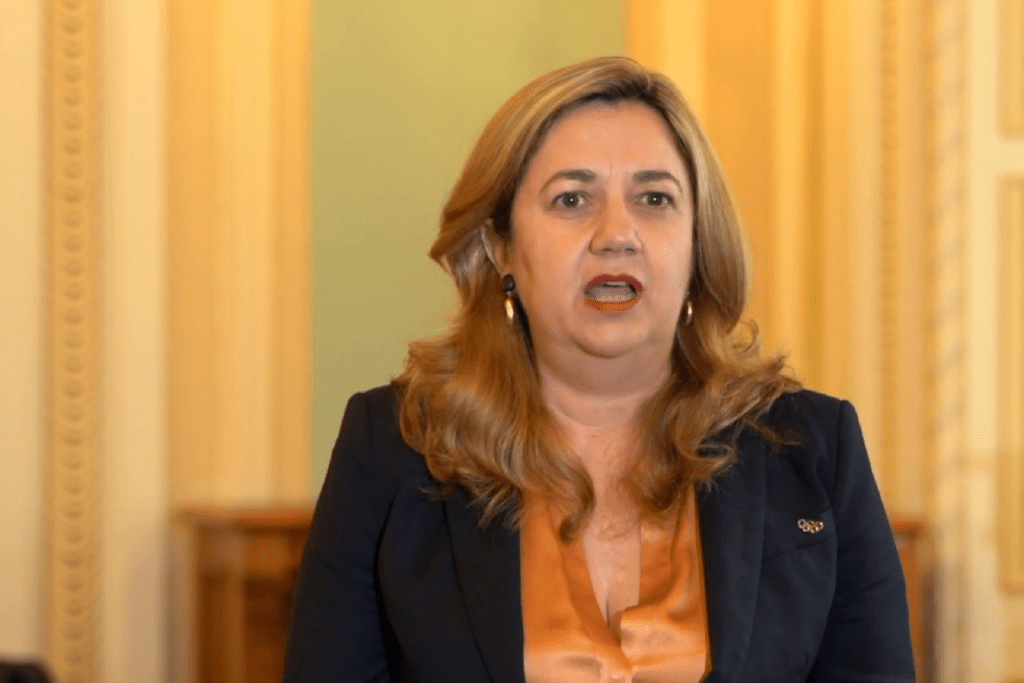The Queensland government will introduce a bill to criminalise coercive control by the end of 2023, Premier Annastacia Palaszczuk has announced, alongside a suite of changes to better protect victims of domestic and family violence.
The announcement comes as part of the Queensland government’s response to the Women’s Safety and Justice Taskforce’s report, Hear Her Voice, led by former Court of Appeal president Margaret McMurdo.
The government will deliver a $363 million package of reforms that includes criminalising coercive control and a four-month Commission of Inquiry into the practices of police, hearing from survivors about their experiences.
There will also be an expansion of family violence courts, a special strategy for First Nations communities, funding for perpetrator behaviour change programs, expansion of High-Risk teams and co-responder models to ensure victims receive a joint response from police and domestic violence services.
“The Taskforce received more than 700 submissions from women and girls with lived experience of domestic and family violence,” Palaszczuk said.
The Queensland government says it is supportive, or supportive-in-principle of the 89 recommendations made by the Women’s Safety and Justice Taskforce, and will work to implement them.
Coercive control is the most common factor leading up to intimate partner homicide. It includes isolating a partner from family and friends, monitoring their movements, controlling access to money and psychological and emotional manipulation.
Discussion around coercive control has been amplified since Hannah Clarke and children were killed by her former partner. Clarke’s parents, Sue and Lloyd Clarke, have welcomed the Queensland government’s response to the taskforce.
“As our foundation, Small Steps 4 Hannah tries to achieve, this is all about HALTing the cycle of domestic and family violence,” Mr Clarke said.
“H’ for Hanna, ‘A’ for Aalya, ‘L’ for Laianah and ‘T’ for Trey, the members of our family who we have lost.”
Queensland Attorney-General, Minister for Justice, Minister for Women and the Prevention of Domestic and Family Violence, Shannon Fentiman said criminalising coercive control was a key recommendation of the taskforce.
“Our systems need to respond better to this unique form of violence and we need to shift our focus from responding to single incidents of violence to the pattern of abusive behaviour that occurs over time,” Fentiman said.
“We will also explore options to improve availability and accessibility of intervention programs for DFV perpetrators. Intervening to help perpetrators change their behaviour is essential to keeping victims safe from violence.
“We will look to continue and expand trials of online perpetrator interventions and programs addressing violence perpetrated by young men against a parent.”
On Tuesday, Fentiman also explained the police service would trial a collaborative co-response model with both police and special domestic and family violence services.
“A key focus of the reforms will be to build understanding of DFV and coercive control across the agency to help police improve how they respond to these matters,” she said.
“Officers need to be able to better identify DFV as a pattern of behaviour over time and assess risk for coercive control and non-physical forms of violence.
“We will act to develop specialist expertise and training in DFV, and improve the frontline response to incidents through development of a manual to guide officers.”
Some Indigenous academics, advocates, and frontline workers have expressed concern about the criminalisation of coercive control and the potential negative impact on Aboriginal and Torres Strait Islander women, who are already over-represented in the criminal legal system.
If you or someone you know is impacted by sexual assault, domestic or family violence, call 1800RESPECT on 1800 737 732 or visit 1800RESPECT.org.au.
In an emergency, call 000.


